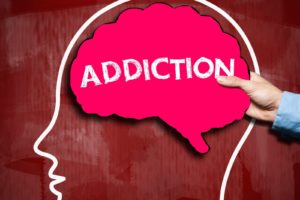Has your child been acting differently lately? Did they used to be organized, outgoing, and actively involved in class and social activities but have recently become withdrawn and disorganized? Have they even started sharing strange thoughts and ideas?
As a parent, you are hyperaware of your child’s behaviors, and if you are noticing signs of psychosis in your child, it’s imperative that you act quickly. Effective treatment could depend it.
What should you do if you begin noticing abrupt or unusual changes in your child? The first step is recognizing the symptoms of psychosis.
What Is Psychosis?
You may have heard the term “psychosis” or “psychotic episode” but may not know exactly what it entails. We typically associate psychosis with the stereotype of a disheveled person talking to themselves or shouting loudly. But psychosis can actually look very different in middle-school and high school-aged children. When a child experiences a psychotic episode, they experience thoughts and sensations that are outside of reality while also losing their ability to distinguish what’s based in reality and what isn’t.
During a psychotic episode, the child may experience delusions (false beliefs, like being controlled by someone else or that they have special powers or a special mission) or hallucinations (hearing things, seeing things, or feeling sensations that aren’t there). They may also exhibit physical symptoms, such as speech difficulties, low motivation, social isolation, and flat affect.
The symptoms of psychosis often develop gradually, according to the National Alliance of Mental Illness (NAMI), and may often be barely noticeable at first. These are called “prodromal symptoms.” Early signs of possible psychosis include:
- Hearing, seeing, tasting, or believing things that others don’t
- Persistent and unusual thoughts and beliefs that cannot be changed
- Strong and inappropriate emotions or no emotions at all
- Withdrawing from family and friends
- Decline in self-care
- Difficulty thinking clearly or concentrating
The most common symptoms of psychosis present during adolescence include hallucinations, impaired functioning, flattened affect, and social withdrawal. If you notice any of these symptoms in your child, consult with a mental-health professional as soon as possible.
Importance of Early Intervention
Each year, about 100,000 youth and young adults in the U.S. experience their first psychotic episode, according to the National Institute of Mental Health. It is thought that psychotic symptoms develop in response to a combination of genetics and environmental stressors experienced during critical stages of brain development, according to NAMI.
While the prevalence of schizophrenia and other psychotic disorders, such as bipolar disorder, is actually very low in children (for example, only 5% of adults diagnosed with schizophrenia report experiencing symptoms before age 15), the likelihood of developing psychotic disorders increases with age. The peak age of onset is early twenties for both males (22) and females (25), but prodromal symptoms can be observed before this.
The longer the amount of time between the onset of symptoms and treatment, the less effective treatment is likely to be, according to research. This means that identifying the early signs of psychosis are imperative to help connect your child with effective treatment. As a parent, you play a crucial role in early intervention.
Early intervention services are most likely to be effective within the first two years of the onset of psychosis. When treatment (including medication and other services, such as psychotherapy, family support, and other supportive services) is provided within the first two years of the first psychotic episode, the risk of a subsequent psychotic episode is reduced by 50%. Additionally, 52% of individuals who receive early interventions make a partial or full recovery, according to the Child Mind Institute.
Potential Diagnoses
We most commonly associate the symptoms of psychosis with mental disorders such as schizophrenia, schizoaffective disorder, and bipolar disorder. However, in addition to these mental disorders, there are many possible origins of psychosis, according to a journal article published in Current Psychiatric Report, including:
- Effects of drugs, such as amphetamines and hallucinogens
- Autoimmune disorders, such as multiple sclerosis in childhood or lupus
- Endocrine issues, such as hyperthyroidism or hypothyroidism
- Infections, such as Lyme’s disease, HIV/AIDS, or syphilis
- Medications, such as antidepressants, benzodiazepines, or opiates
- Neurological diseases, such as epilepsy or head trauma
- Neuropsychiatric disorders, such as Huntington’s or Wilson’s disease
- Nutritional deficiencies, such as magnesium, vitamin A, vitamin D, or vitamin B12
There are also other psychiatric disorders that may be indicated by the presence of psychosis, including:
- Alcohol withdrawal
- ADHD
- Autism
- Major Depressive Disorder
- Obsessive Compulsive Disorder
- Posttraumatic Stress Disorder
- Extreme stress
What You Can Do
If you notice your child exhibiting prodromal symptoms or symptoms of psychosis, NAMI recommends bringing up your observations with your child in a quiet and peaceful location. It’s important that you stay controlled and calm during your conversation. Keep in mind that if your child is in fact experiencing delusions, their feelings and beliefs are very real to them.
Be compassionate and non-judgmental of your child, and avoid using the term “psychosis.” Why? Because your child may have a negative association with the term.
After sharing what you’ve noticed, listen to what your child has to say in the same compassionate and non-judgmental manner. Let your child know that you are concerned for them, and explain that you’d like them to talk to a mental-health professional.
You can also let them know that scheduling a complete medical evaluation could help them figure out why they are experiencing some of these things. As a parent, you serve an important role in recognizing symptoms and connecting your child with the professionals and resources they need to access early intervention treatment.










